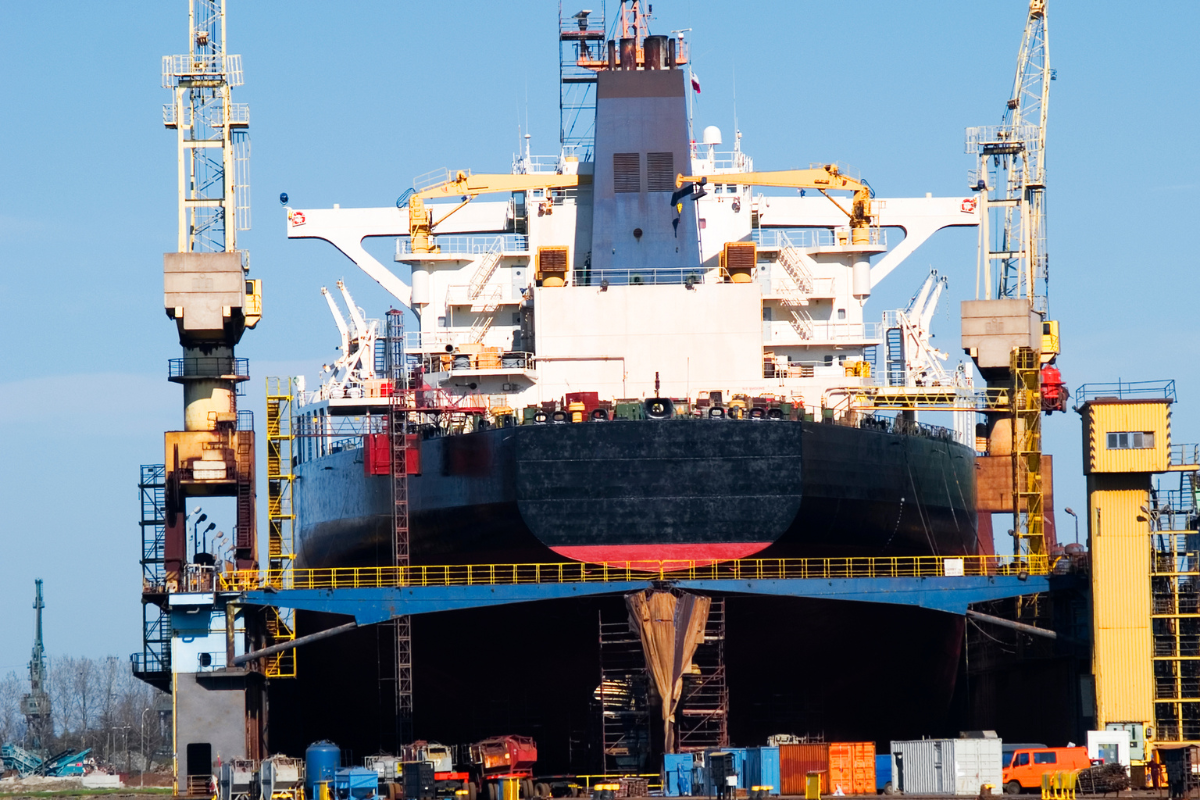Choosing the right shipyard is one of the most critical decisions in the drydocking process. A well-chosen shipyard can save costs, ensure high-quality repairs, and minimize downtime. However, comparing quotes from multiple shipyards is often a challenging task, requiring a balance between price, quality, and scope of work.
Here’s a guide to help you navigate the complexities of shipyard quotes and find the best value for your drydocking project.
1. Look Beyond the Bottom Line
It’s tempting to choose the lowest bid, but the cheapest option often comes with hidden risks. A low quote might indicate incomplete pricing, subpar materials, or a lack of detailed planning.
💡 Pro Tip:
- Examine the scope of work to ensure all necessary repairs are included.
- Be wary of vague descriptions such as „as required” or „to be determined.”
Why It Matters:
A low upfront cost can lead to unexpected expenses later in the project.
2. Check for Hidden Costs
Many shipyard quotes exclude essential items, such as testing, inspections, or port fees. These omissions can inflate the final bill.
💡 Pro Tip:
- Request a breakdown of all costs, including labor, materials, and additional services.
- Ask if sea trials, waste disposal, and environmental compliance fees are included.
Why It Matters:
Transparent pricing helps you plan and budget effectively.
The hidden costs of drydocking
3. Evaluate the Quality of Materials and Labor
The quality of materials and expertise of the workforce play a significant role in determining the long-term success of repairs. Low-cost shipyards might cut corners by using inferior materials or inexperienced labor.
💡 Pro Tip:
- Ask about the origin and grade of materials being used.
- Verify the qualifications and experience of the workforce.
Why It Matters:
Investing in quality upfront reduces the risk of repeat repairs and operational disruptions.
4. Compare Timelines and Availability
A shipyard’s timeline is just as important as its pricing. Delays can lead to extended downtime, affecting your operational schedule and profitability.
💡 Pro Tip:
- Confirm the availability of drydock space for your vessel.
- Assess the shipyard’s track record for completing projects on time.
Why It Matters:
Timely repairs ensure your vessel is back in service as planned.
5. Assess Shipyard Reputation and References
A shipyard’s reputation is often a reliable indicator of the quality of its services. Don’t hesitate to ask for references or visit the facility if possible.
💡 Pro Tip:
- Speak with previous clients about their experiences.
- Look for reviews or testimonials from shipowners who’ve used the shipyard.
Why It Matters:
A reputable shipyard is more likely to deliver consistent quality and service.
Our consultancy services uncover hidden costs in shipyard quotes. Learn more here.
6. Account for Location and Logistics
The location of the shipyard can significantly impact costs and logistics. Consider factors such as travel expenses, port charges, and local regulations.
💡 Pro Tip:
- Compare shipyards within the same region to minimize transit and logistical costs.
- Factor in regional compliance requirements that might affect repairs.
Why It Matters:
Choosing a conveniently located shipyard can streamline operations and reduce expenses.
7. Seek Professional Assistance
Navigating shipyard quotes can be overwhelming, especially if you’re unfamiliar with industry standards. Engaging a consultancy with expertise in drydocking can save you time and money.
💡 Pro Tip:
- Use expert consultants to review and compare quotes.
- Leverage their experience to negotiate better terms.
Why It Matters:
Expert guidance helps uncover hidden costs and ensures you get the best value for your investment.
Conclusion
Comparing shipyard quotes is about more than just finding the lowest price. It’s about understanding what’s included, assessing quality, and ensuring the project aligns with your operational goals. By following these tips, you can make informed decisions and set your drydocking project up for success.
At GML Consulting, we specialize in helping shipowners analyze and compare shipyard quotes, ensuring maximum value and minimal surprises.



